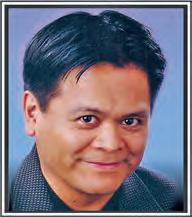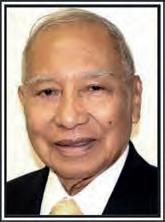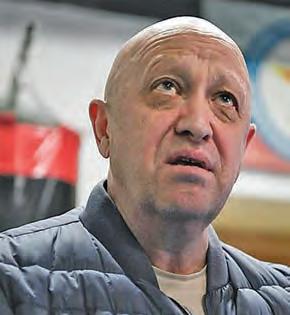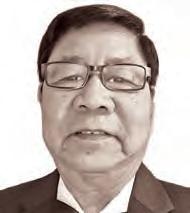CANDID PERSPECTIVES




THe u.s. suPreMe courT loves you if you’re WHiTe, ricH, and sTraigHT



CANDID PERSPECTIVES




THe u.s. suPreMe courT loves you if you’re WHiTe, ricH, and sTraigHT


If you grew up in a Filipino immigrant household, it’s likely that you’ve heard your parents talk about retiring in the Philippines ad nauseum. As soon as your immigrant parents would stroll down memory lane, recall the fun times they had in the Philippines, a life difficult but far more carefree than the U.S., you already know where this discussion would end up going –your parents talking about the possibility of retiring in the country they were born and raised in, again.
As the years passed and your immigrant parents got more settled and acculturated, you’d still hear stories of life in the Philippines, but following that talks of retiring there became less and less. The new dream would be replaced with your immigrant parents saying, “when I retire, I want to spend half the year in the Philippines and half in the U.S.”
So, what happened? Besides your immigrant parents moving further along the process of American assimilation and adaptation, their change of heart – from being certain to retire in the Philippines, to being there half-the-year, or completely abandoning the idea – is most likely rooted in a realization that the U.S. has so much more to offer than the Philippines for retirees like better health care. A senior doesn’t have to worry about repeated power failures and water stoppages due to poor infrastructure which can be common occurrences in the Philippines. Such worries would be too cumbersome and tiring for a retiree.
But if you haven’t been back to the Philippines in a while or keeping up with the country’s progress, the Philippines that your immigrant parents knew is an entirely different Philippines today. Some of the concerns and reservations that casted doubt for Americans to retire in the Philippines are no longer problematic issues. Of course, some remain, such as inadequate medical facilities in the countryside.
Today, you have places like Makati and many other parts of the Philippines that’s certainly at par with many of the most modern and advanced cities in the world. Filipino Americans who’ve been to the Philippines recently talk about how surprised they were when visiting certain areas. The skyline with futuristic skyscrapers, the high-end restaurants and clubs, luxurious theaters and giant malls, to name only a few, all leave the impression that it’s like living in the states.
For retirees, the new planned developments are smartly put together and resemble the trend we see in other new developments in U.S. cities that have in mind convenience where you can live and walk to get everything from stores to restaurants to coffee shops. All the entertainment and necessities including pharmacies and clinics are nearby. Infrastructure is reliable in such communities.
As far as modern convenience and amenities, retiring in the Philippines will not deny you of these. If in your retirement you plan to continue doing remote or distance work, internet access and reliability will be just as advanced as in the states.
Retiring in the Philippines (at least in many parts) is now practical. The country’s modernization efforts are finally paying off.
And it makes perfect sense that the Philippine government is wanting to reap the rewards for all their efforts by trying to tap a new income stream for the government’s treasury – and that is, the expat retirees’ market.
President Ferdinand (Bongbong) Marcos, Jr. after his bilateral meeting with President Joe Biden earlier this year appealed to Filipino Americans to consider retiring in the Philippines.
We all know about the outgoing migration from Hawaii in part due to the high cost of living here. We also know that many who do move are seniors because either their fixed income or savings will not be enough to last living in Hawaii in their golden years. Some local seniors past 65 years old and still must continue working will move away just so they can retire. Many Hawaii locals will go to the mainland. But for many retirees in our community, an increasing viable option is moving to the Philippines.
For our cover story this issue, associate editor Edwin Quinabo looks into how practical it is for Americans to retire in the Philippines, what are the benefits and caveats. The Philippine government is actively promoting their country as a retirement haven for expats and making it easier for this group of foreigners. In fact, the Philippines has the most flexible and powerful visas in the world for expat retirees. The most attractive incentive to choose the Philippines is the affordable cost of living, expats say. Get the details with actual dollar figures projections. We also see other areas once problematic concerns for Filipino Americans wanting to retire there, are not problematic at all now. It’s a new Philippines, at least in many areas, from the Philippines of old that your immigrant parents have been talking about. The modern Philippines of has so much more to offer.
Complementing the cover story, HFC columnist Seneca Moralda-Puguan, contributes “Why It’s Still More Fun in the Philippines.”
Also in this issue, HFC’s Carlota Ader contributes a Q&A featuring Jaymie Nicole Anderson Tyau who was crowned Mrs. Hawaii-America for 2023 at the Blaisdell Center on June 30.
In our new column Hawaii Workers Corner, Arcelita Imasa, M.D. clarifies overtime pay. “Your employer should be paying you at the rate of time and one-half for all hours worked over 40 hours in your workweek,” she said.
We have an Open Forum contribution from Joe Kent of Grassroot Institute of Hawaii “Skyline’s Costs Are Sky-high for Hawaii Taxpayers.” We have news of two bills that the Honolulu City Council passed aimed to provide tax relief for homeowners and our elderly. In other news, the Honolulu City Council also passed a bill that requires Honolulu bars and nightclubs to keep Narcan naloxone spray on site, which is a life-saving medication to counter the effects of opioids.
Lastly, the big national news has been the U.S. Supreme Court’s three controversial decisions: first, invalidating President Joe Biden’s federal student loan debt cancelation; second, the striking down of Affirmative Action, and third, ruling that businesses can discriminate against the LGBT on the grounds of religious freedom. HFC columnist Emil Guillermo addresses these in his article “The U.S. Supreme Court Loves You If You’re White, Rich, And Straight.”
We hope you enjoy this issue. For back issues, visit www. thefilipinochronicle.com. Thank you for supporting the Hawaii Filipino Chronicle. Until the next issue,warmest Aloha and Mabuhay!


The government has some of the most enticing incentives to draw in expat retirees such as not taxing retiring foreigners’ pensions and annuities. The government has a department whose sole mission is to promote the Philippines as a destination for expats.
The Philippines also offers a very powerful visa for retiring expats that essentially makes them permanent residents, enabling these special visa holders to go in and out of the country freely and for as many times, without having to constantly renew their visas.
Publisher & Executive Editor
Charlie Y. Sonido, M.D.
Publisher & Managing Editor
Chona A. Montesines-Sonido
Associate Editors
Edwin QuinaboDennis Galolo
Contributing Editor
Belinda Aquino, Ph.D.

Design
Junggoi Peralta
Photography
Tim Llena
Administrative Assistant
Lilia Capalad
Editorial & Production Assistant
Jim Bea Sampaga
Columnists
Carlota Hufana Ader
Rose Cruz Churma
Elpidio R. Estioko
Willie Espero
Perry Diaz
Emil Guillermo
Arcelita Imasa, M.D.
Seneca Moraleda-Puguan
J.P. Orias
Charlie Sonido, M.D.
Emmanuel S. Tipon, Esq.
Contributing Writers
Clement Bautista
Edna Bautista, Ed.D.
Teresita Bernales, Ed.D.
Sheryll Bonilla, Esq.
Serafin Colmenares Jr., Ph.D.
Linda Dela Cruz
Carolyn Weygan-Hildebrand
Amelia Jacang, M.D.
Caroline Julian
Raymond Ll. Liongson, Ph.D.
Federico Magdalena, Ph.D.
Matthew Mettias
Paul Melvin Palalay, M.D.

Renelaine Bontol-Pfister
Seneca Moraleda-Puguan
Mark Lester Ranchez
Jay Valdez, Psy.D.
Glenn Wakai
Amado Yoro
Philippine Correspondent:
Greg Garcia
Neighbor Island Correspondents:
Big Island (Hilo and Kona)
Grace LarsonDitas Udani
Kauai
Millicent Wellington
Maui
Christine Sabado
Big Island Distributors
Grace LarsonDitas Udani
Kauai Distributors
Amylou Aguinaldo
Nestor Aguinaldo
Maui Distributors
Cecille PirosRey Piros
Molokai Distributor
Maria Watanabe
Oahu Distributors
Yoshimasa Kaneko
Shalimar / Jonathan Pagulayan
Advertising / Marketing Director
Chona A. Montesines-Sonido
Account Executives
Carlota Hufana Ader
JP Orias

Americans and most of Hawaii are still celebrating the win of Hawaii’s own Allisen Corpuz at the 2023 U.S. Women’s Open at Pebble Beach Golf Links. Allisen, who just turned professional in 2021, is the first American to win the U.S. Open since 2016 when Brittany Lang took the championship.
The global Filipino community is also celebrating. She’s been getting write-ups of her victory from the international Filipino media. Corpuz’ father Marcos is originally from Ilocos Norte and her mother May is of Korean descent.
After winning the U.S. Open, Allisen credited her father for introducing her to the sport. “I started [golf] when I was four, or five years old. My parents actually live on Kapolei golf course — on the
left side… So yeah, my dad has always been a really big golf fan and just got us into it really young,” she said.
Allisen is the second U.S. Open winner of Filipino ancestry. In 2021, Filipino-Japanese Yuka Saso won the championship.
Allisen carded a remarkable 3-under par 69 to claim a three-stroke victory at the US Women’s Open. She finished with a total score of 9-under 279 after 72 holes.
Hawaii’s golf pro phenom Michelle Wie (and fellow Punahou alumni, Allisen graduated from Punahou) just announced her retirement from the sport. Wie won the U.S. Open in 2014 and has been an inspiration to many Hawaii youths like Allisen to chase after their dreams in professional sports.
“I never really thought I’d get this far. Just watching Michelle, she’s been such a huge
We all know that there are so many factors to consider in choosing a retirement destination besides modern amenities and convenience.
Taking other family members’ input into consideration is another crucial factor.
Your health and what you would require outside of the normal care of a healthy retiree is important to weigh in the mix.
For anyone who has moved away from the comforts of their hometown to another town or city, you know a community’s dominant values can bear on whether you feel that you fit in or not. For any individual and certainly for a senior, fitting in and feeling emotionally connected to a place and its people arguably can be just as important as the practical factors we consider such as affordability.
This feeling of fitting in is really why Filipino immigrants give retiring in the Philippines serious thought in the first place.
We are very pleased at the progress that the Filipino people has made and continue to make in their country. There is a sense of pride for our community here to see our ancestral land develop and for it to be a practical alternative as a retirement destination.
At the same time, the fact that some Hawaii retirees who would love to stay and retire here but feel forced to move because of unaffordability – that’s a sad and unfortunate situation. And what does that say about our own leaders and community, our choices we’ve made in the course of some 30-40 years that’s making it more difficult for more Hawaii residents to retire in comfort.
Ultimately our retirement requires self-accountability. We must seize our own power to control our destiny in our golden years. We need to plan for retirement, put aside money as best possible and not wait until we’re in our 50-60s. If we do this right, at least we’ll have more options available for ourselves and our family when retiring age comes along.
role model to me, and it was really awesome to break her record for the Public Links,” Corpuz said. “But I’ve never really compared myself to her. I’ve always wanted to make my own name. She’s just served as a really big inspiration.”
Allisen, now, takes on that role to inspire a new generation of Hawaii youths. And it’s not just about sports. It’s about working hard and excelling at whatever you choose to do, that’s the message that role models like Allisen are sending.
Besides golf, Allisen has spent a lot of her young adult life getting a solid education. She got a business degree and an MBA from USC.
We applaud Allisen for the example she is setting. You can chase after your dreams as a professional athlete, but it’s also wise to get a good education. Michelle Wie did the same by graduating from Stanford.
Many young athletes put all their eggs in one basket. Only a few will make it to the pros; and the longevity of many professional sports is very short.
Allisen received $2 million for her U.S. Open victory. It’s likely that endorsements await her. At 25 and only two years into the start of her pro career, Allisen has a bright future. She is the first player in 20 years to win the U.S. Open as her first LPGA victory.
“My mind’s racing… this is really a dream come true and it was something that I’ve
dreamed of but at the same time kind of just never really expected to happen so, just trying to take it in and enjoying the moment,” Allisen said.
“Just knowing the history ... Tiger just absolutely annihilated this place. Yeah, it’s really special,” Corpuz said. “Twenty, 30 years from now, I think just the fact that it’s a U.S. Open means a lot to me. But know that it’s at Pebble makes it even sweeter.”
Former President Barack Obama was among the first to congratulate her on Twitter. “You make us all proud — and look forward to a round at Kapolei!.”
Barack, also a Punahou alumni (1979 graduate), became president close to the time that Wie was garnering media attention as a golf prodigy.
Wie and Corpuz are the only golf major champions from Hawaii. The U.S. Open is considered one of the majors in the sport of golf.
Corpuz’s victory is also garnering renewed attention
on Punahou school. A CNN lead paragraph in an article to mention Corpuz’s U.S. Open win is as follows: “With alumni spanning the Oval Office, Hollywood, the Olympics, and even outer space, there have been countless landmark days for graduates of Punahou School in Hawaii.”
Further into the article the writer mentions some of Punahou’s star-studded alumni like AOL co-founder Steve Case, eBay founder Pierre Omidyar, actress Kelly Preston, NASA astronaut Charles Veach, and Olympic gold medalist surfer Carissa Moore.

A big congratulations to Allisen Corpuz for winning the U.S. Women’s Open. We join golf enthusiasts, the rest of Hawaii and our nation in congratulating you on your historic win. We’ll be watching you as your professional golf career evolves.
Also, mahalo to Michelle Wie for being an inspiration to many of Hawaii’s youth. We wish you the best in your retirement.
Philippine President Ferdinand “Bongbong” Marcos Jr. not only is inviting first, second, third generation Filipino-Americans to visit their ancestral homeland to bolster the tourism sector, he’s also calling on Filipino-Americans to come home to retire in the Philippines.
“It’s my hope that some of you will come home for good and retire in a much better Philippines... a Philippines with better roads, better airports, better internet, better governance. That is my dream. And that’s why that is what my administration is working for,” Marcos Jr. said in May 2023, at a presser while meeting with the Filipino community in Washington, D.C. after his bilateral meeting with U.S. President Joe Biden.
The Philippine government has been welcoming of foreign nationals to retire there for decades and has a government agency called the Philippine Retirement Authority (PRA) whose sole mission is to promote the Philippines as a retirement haven. The PRA was established by Bongbong’s father President Ferdinand Marcos in 1985.
Last month Yahoo Finance named the Philippines as one of four countries that offers the most incentives to retire there. It listed the Philippines’ Special Resident Retiree’s Visa (SRRV) as one of the incentives that is among the most flexible visas in the world for foreigner-retirees. The SRRV allows exits and entry into the country as many times as desired (and with exemptions from airport transit charges). It offers retirees the right to stay indefinitely without the need for constant renewals. SRRV holders are regarded as permanent residents of the Philippines.
Through the PRA retired expats receive senior citizen discounts. The government offers expat retirees a waiver of import duties and taxes on up to $7,000 of personal items.
Foreign government pensions such as Social Security, 401(k), individual retirement account (IRA) or other types of re-
tirement plans and annuities are also exempt from taxation in the Philippines.
Foreign retirees can buy property (condos and townhouses), open businesses and is only taxed on income that’s generated in the Philippines.
The PRA says there are an estimated 75,000 retirees from more than 150 countries in the SRRV program. But that doesn’t account for the total population of expats (there are other visas) in the Philippines which some estimate at 200,000.
The U.S. State Department’s most recent records as of February 2023, show almost 300,000.
U.S. citizens residing in the Philippines include many U.S. military veterans. How popular a destination is the Philippines for U.S. veterans? Manila is home to the only Veterans Administration regional office outside of the U.S. to serve that large population. The actual number of retirees out of that 300,000 was not provided.
Philippine developers report many of their buyers are foreigners, mostly Filipino-Americans who have strong ties to the country as former Philippine citizens or active investors. “At least 50% of our condo sales” are to Filipinos living in the U.S., John M. Reyna, assistant vice president for Robinsons Land Corp, told the Wall Street Journal. Some buyers are strictly investors. Some are investing in property as their future retirement home.
Developers say new developments in Ayala. Makati, Taguig and Quezon City are convenient for retirees because they’ve been designed to have stores that sell necessities, shopping malls and entertainment all in walking or nearby distance.
Many of the newer immigrants from the Philippines residing in Hawaii are a part of this real estate boom. Hawaii’s Filipino immigrants typically will invest in property in the hometowns they came from or in Manila with the aim of possibly retiring there.
Roland Casamina, President/CEO of House of Finance on Oahu, told the Filipi-
no Chronicle that some in Hawaii’s Filipino community have homes in the Philippines while they rent in Hawaii. He said, “we [in Filipino community will] fix our home in the Philippines while we struggle to pay rent here in Hawaii. For many who do this, they have one of the best houses in their hometown in the Philippines yet continue to pay rent in Hawaii.”

The post-pandemic era – with high inflation in as many years the pandemic (critical part) ended and counting -- could make the Philippines even more attractive to retirees on a tight budget. For retirees who choose to continue to work out of need or preference, the new distance-work culture makes retiring in the Philippines viable. Most places in the Philippines have reliable internet access, expat retirees say.
But retiring in the Philippines takes planning and shouldn’t be done on a whim. Experts recommend that future expat retirees consult with their financial advisor and set aside money incrementally before making a move. There are also requirements to meet.
To obtain an SRRV, applicants must be:
• at least 50 years old
• Deposit at least $10,000 into a Philippines bank if you have guaranteed monthly income (covers you and two dependents)
• Deposit $15,000 for each additional dependent
• Have proof of pension that pays at least $800 a month ($1,000 for couples). Social Security benefits could meet the pension requirement.
(continue on page
(Benefits....from page 4)
• The one-time visa application fee is $1,400 for the head of household, plus $300 for each additional family member. (visit pra.gov.ph for full details.)
So why are Americans moving to the Philippines to retire? What’s so attractive about it and on the flipside, what are the caveats?
For the same reason Hawaii residents find themselves priced out of the state and are moving to the U.S. mainland – the Philippines is yet another option where the cost of living is more affordable than Hawaii.
Philippine officials estimate the U.S. dollar has three times the value in the Philippines and that it’s possible to live comfortably on $2,500 a month. Compare that to the overall retirement estimate cost in the U.S. at about $3,800 a month.
In rural parts of the Philippines, a couple can live well for $1,140 a month; while in the big city, it gets closer to $2,500. International Living, a magazine that extensively covers the costs of residing in different countries, reports that most expats can live comfortably with $1,000 to $2,200 a month.
Numbeo, a major database of economic conditions in different countries, compared the Philippines and the U.S. in terms of specific costs, as of March 2022. It found:
• Rent Prices: 77.95% lower than in the U.S.
• Consumer prices with rent: 58.64% lower than in U.S.
• Restaurant meal prices: 70.99% lower than in U.S
• Grocery prices: 47.71% lower than in U.S.
For some retirees, moving to the mainland, to parts where it’s desirable with a vibrant Filipino community, that too could be too expensive with the little savings accrued over their working years. International Living’s Global Retirement Index estimates Americans should have about $200,000 in savings to retire comfortably in the Philippines. GOBankingRates estimates retirees who plan to live in the U.S. should have a nest egg of $300,000 to $400,000 in pre-retirement
savings.
More than half of U.S. workers must work past the age of 65, and many have no plans to retire at all, researchers say.
For those Filipinos who fall into this category, the option of retiring in the Philippines is like buying a ticket to retirement that otherwise would not be possible in Hawaii or the mainland.
Returning to one’s ancestral and cultural heritage, a place where retirees have social capital
For some Filipino Americans, they say retiring there was never a second or third option, but the plan all along. Going back to the Philippines to them is a homecoming, the country they grew up in, the familiar, the place where they feel they truly belong.
Carolyn Weygan-Hildebrand, born and raised in Baguio, Cordillera region, but has been living in Hawaii for many years, said, “every now and then, one meets those who have retired there. They are usually the ones who have stronger ties or those who’ve contributed to making life better there. For example, someone who sent young people to school or helped to own property or start a business. In other words, they have social capital.”
Weygan-Hildebrand said she hasn’t given much thought into retiring in the Philippines. “I will consider it if I can remain healthy and not be a burden to anyone for a long time.
“When I see retirees in Honolulu, I see in them some of the things that I want to do. That is, actively learning new things, volunteering in areas that they like, and finding support and opportunities.”
Weygan-Hildegrand said she would retire in the Cordillera region or a similar place if she were to return to the Philippines in her golden years.
“It is home and so there is culture-compatibility with folks
and the environment. There’s so much to explore there yet also,” she said.
Most Americans who travel to the Philippines talk about how safe the Philippines is contrary to what’s reported on the media. But there is actual data to support that the Philippines is not as safe as most people think who’ve been there but had never encountered incidences that compromised their safety. Experts say there are areas in the Philippines that are safer than others. The same holds true for most countries including the U.S.
According to the Institute for Economics and Peace’s Global Peace Index -- which ranks the nations of the world based on criteria like violent crime, internal conflict, homicides, access to weapons, political instability, violent demonstrations, terrorist activity, the population of imprisoned people, safety and security, and militarization – the Philippines ranked 125 in most secure nations. But it ranked ahead of the U.S. which landed in the 129th spot.
Experts recommend retirees do laser focused research in the areas of interest and to talk to locals there.
One source for information on a wide range of topics from health insurance, moving and shipping, real estate firms and listings, relocation companies, expat banking, among others is www.expatexchange.com. Expats share their stories in forums – what it’s like to live in specific cities or provinces, their experiences in moving and transitioning to local customs.
Seniors tend to find extreme weather from very cold to hot less tolerable than in their younger years. The Philippines tropical weather – that can get too hot in the summer
“It’s my hope that some of you [Filipino Americans] will come home for good and retire in a much better Philippines... a Philippines with better roads, better airports, better internet, better governance. That is my dream. And that’s why that is what my administration is working for.”
– Ferdinand (Bongbong) Marcos Jr., President of the Philippines1. Banaue: Best Village
2. Intramuros: Best Historic Place
3. Boracay Island: Best Island
4. Makati: Best City
5. Palawan Island: Best Tropical Island
6. Moalboal: Best Small Town
7. Siargao Island: Best Beach
8. Davao City: Best Tourist Place
9. Bohol Island: Best Place to Stay and Retire in the Philippines
10. Camiguin Island: Best Adventurous Island
SOURCE: Plan A Retirement
– is at least closer to Hawaii than most parts of the mainland with extreme weather conditions.
The Philippines countryside is abundant in pristine world-class beaches, lush valleys and verdant rolling hills and mountains – places that calm the senses and enhance feelings of serenity that seniors in particular find value in, having had already transitioned from the hustle-and-bustle of work life to retired, relaxed mode.
Expat retirees can island hop to some of the most beautiful places on the planet. Palawan was ranked as the no. 1 best island in the world in 2016 by a poll from readers of US travel magazine, Conde Nast.
For seniors wanting a more vibrant social life, there is the option to live or frequently visit its various cities. The Philippines has some of the most modern and entertainment-rich cities in all of Asia. Filipino Americans who haven’t been back for a long time would be in awe at developments in areas like Makati City, frequent visitors say. Some of the most futuristic
buildings in the world, like the G.T. International Tower, is in Makati City. Metro Manila’s skyline rivals the best anywhere, locals say.
The major drawbacks of Philippine city life are air pollution, excessive traffic, and in some cities, high crime and slums.
Living in newer planned developments in the city addresses some of the concerns retirees have in moving to the Philippines. Some areas in the countryside –while serene and beautiful – could lack sufficient infrastructure that could mean frequent power outages and water stoppages (shortage), and outdated communications.
Insufficient infrastructure also means less amenities and easy access to necessities. Retirees would need to spend more time, money and energy traveling to the nearest bank, store or entertainment center.
As it closed out its most recent term, the U.S. Supreme Court showed how far it will go to protect a dwindling white majority. In the final three rulings, it announced the law works especially well for you if you are straight, rich, and white.

Want a website for gay weddings? No business open to the public has to do one for you. It can now legally discriminate and exclude you. That doesn’t sound very American.
Help on student loan debt? Sorry, you have to pay up. Unless you’re a bank that passes out bad mortgages, no one’s bailing you out. Biden tried to help, but the conservative court won’t let him.
Or how about a hand-up for being the first in your barkada qualified to go to an Ivy League school? The laws that might have helped last week, no longer apply. And don’t tell us what color you are. The court is indifferent to race.
As I said, justice got a little harder to achieve if you aren’t white, straight, and rich.
That’s the takeaway after the high court’s grand fina-
le. With all the news it’s been making on its lack of ethics, the unpopular court has proven to be more venal, human, and very political at its core.
It’s not acting as the elevated dispassionate body that has ruled historically based on legal scholarship and a healthy respect for precedent.
It’s right there in the swamp with everything else in DC, a SCOTUS forged by politics and bias. And if you don’t vote, it’s the court we deserve. Want a better SCOTUS? No legal education is necessary. You’ve just got to register and vote.
After 50 years of moving toward a more just society, we’ve got ourselves a 6-3 rollback court. Abortion, roll it back. Affirmative Action, roll it back. Gay rights, roll it back.
It’s like we’re starting over. And there is now so much more to overcome.

I’ve always been willing to talk about being Filipino, American Filipino, Asian American Filipino by all my preferred designations for which there are no boxes.
I’ve just always talked about race. Because to not talk about it is to be invisible. And now, I’m upping the volume.
The Supreme Court made me do it. The six conservatives
may have on their race blindfolds (the ones they want everyone to wear).
But they don’t have earplugs.
If you were bashful before, don’t be. It’s time for all of us to tell our stories. Cebuano. Ilocano. Tagalog. Tell it. Loudly. Race impacts your life, but you don’t say so? Say it now.
Especially on college applications.
I had told a friend, a female Harvard classmate, that I thought I would cry when, as expected, the Supreme Court finally ruled against the use of race in college admissions. It would be like Dodd and Rowe. A roll back nearly 50 years. She understood.
And then the court ruled. But I didn’t cry.
Maybe it’s because I had a dental procedure scheduled that morning. Nothing like a double dose of Lidocaine to numb me while absorbing the opinion.
It helped me deal with the
pain. I didn’t feel it. I just got mad.
First, I felt a little guilty. Could I have done something to save affirmative action— more than 50 years ago?
Chief Justice John Roberts was at Harvard at the same time I was there. And realized I had failed in my original race mission back in the ‘70s. My mere presence at “that school in Boston” did not persuade young Roberts of the merits of diversity.
What about the mutual benefits of having an underprivileged Filipino kid as part of the student body at Harvard? Because I was not just there to take. I was there to give America’s future leaders, like Roberts, a real-world understanding beyond white preppiedom, and to help him build the kind of empathy he’d need to have as a chief justice of the United States.
Had I succeeded–had our paths crossed–maybe Roberts would not have written such a terrible opinion that set back civil rights progress in higher education nearly 50 years.
Robert’s opinion was just wrong, beginning with his application of the Equal Protection Clause of the 14th Amendment to strike down the use of race in admissions.
“The Harvard and UNC admissions programs cannot

be reconciled with the guarantees of the Equal Protection Clause,” wrote Roberts. “Both programs lack sufficiently focused and measurable objectives warranting the use of race, unavoidably employ race in a negative manner, involve racial stereotyping, and lack meaningful endpoints.”
Endpoints? Do you mean the meter’s running on justice and fairness and at some point, racists just need to run out the clock?
The use of the Equal Protection Clause got the attention of Neal Katyal, former acting Solicitor General of the United States, who said that the Equal Protection Clause only binds state actors.
So can Harvard, a private institution, violate the Equal Protection Clause?
“Legally, that’s just impossible,” said Katyal, a law school professor of more than 20 years in an interview on MSNBC. Katyal pointed out that by virtue of taking federal funds, Harvard could be in violation of Title VI, a federal statute. “But Harvard certainly didn’t violate the Constitution.”
But you can’t overturn nearly 50 years of civil rights precedent on a violation of a statute. It looks better if you can say our venerable Constitution’s been violated.
And that exposes the subjective political nature of the decision, legal precedents be damned.
If you feel bad about this decision, you’re in good company. Even the brightest legal minds in the nation were shaking their heads at this one.
(I read from Justice Sotomayor’s opinion, which includes excerpts from the AALDEF amicus brief, on my Emil Amok’s Takeout, E.548. I read from Judge Brown-Jackson’s scathing opinion. And a bit from Clarence Thomas’ opinion which includes his interpretation of Asian American history. See/ hear the recordings on www. amok.com).
(continue on page 10)

20, 2022.

“I have never heard you say ‘I love you’,” whispered an Ilocano lawyer while making love to a beautiful Spanish mestiza.
“I have given my entire body to you and you still ask if I love you?” she riposted with a feeling of irritation.
“A call girl gives her entire body to her client. That does not mean that she loves him,” the lawyer argued.
“Are you saying I am a call girl?” the mestiza cried, slapped the lawyer, and pushed him away.
19-year-old virgin’s explanation
“shy.” I asked her if she was shy. She replied: “Very shy.”
Other explanations
The Filipina might feel she loves the man but hesitates in making a commitment. Once you say “I love you,” that’s it, you have made a declaration that you cannot “unsay.” You cannot claim later that you did not mean it. That would be inappropriate, and you would lose the guy’s respect, if not his affection. As they say in Ilocano “balangkantis.”
first sight. Such feelings fade away when the object of attraction stays out of sight.”
Several women might feel that they love their current suitor but are apprehensive that if they say, “I love you”, they might meet a better guy. What then? So, they delay saying “I love you”.
Some women who have been hurt by a prior relationship are very reluctant to say the word “I love you.” They do not want to be hurt again. As they say, “Once burned, twice shy.”
also be a cause of not saying “I love you.” This psychological condition is defined as a clear difficulty in identifying and expressing one’s own emotions. Hence, sufferers can’t give a name to what they feel, and consequently, will be unable to say “I love you” even if they feel it.
Some men say “I love you” without expecting a particular response
-Lyrics by Emmanuel S. Tipon
To be sung to the tune of “What Now My Love”
First Sung by Emmanuel S. Tipon at The Manor, Camp John Hay, Baguio on October
We asked a 19-year-old virgin with unparalleled beauty and incredibly one of the most intelligent women we have known, why Filipinas are reluctant to say “I love you” to someone they love. She replied that Filipinas are
The woman might not be sure what her feelings are. Is it love or infatuation or fascination? Or as one young girl told me “puppy love” or “crush” which has been described as “an informal term for feelings of romantic love, often felt during childhood and early adolescence.
It is an infatuation usually developed by someone’s looks and attractiveness at
Women who have suffered trauma from the divorce or separation of their parents are hesitant to say the word “I love you.” They fear that if they enter a romantic relationship, it will also deteriorate.
It has been noted that certain women want to control the relationship. By not disclosing how they feel, they have power. It leaves the man continuing the pursuit.
There is a report that “The disorder of alexithymia could
There is a lawyer we know who sometimes says “I love you” because that is how he feels, without expecting a particular response from the woman he says it to. “Love” in this context does not necessarily mean romantic love.
The responses he has evoked have been: (1) Silence, (2) I love you, too, (3) I wish I had met you earlier, (4) I am happily married, and (5) Can it still perform? The last response was the most shocking, particularly coming from an attractive 30-something Filipina. The lawyer quipped: (continue on page 12)
While the rebellion in Russia was called off by the Wagner group, a paramilitary force or group of mercenaries that waged the short-lived rebellion in Russia, its leader Yevgeny Prigozhin is still on the loose!
Why?
Because there were no charges filed against them by Russian President Vladimir Putin and his exact location in Belarus is unknown. Nobody knows where he is. Is Putin scared of him?
If there’s one person who can challenge Putin, observers say, it’s Yevgeny Prigozhin, the leader of the Wagner Group.

Unknown to many, Prigozhin was a close friend of Russia’s President Vladimir Putin. So, the latter considered the former’s action as a “stab in the back.”
Also, not many know it, when Russia invaded Ukraine, the Wagner Group was part of the Russian forces. They were in the frontline (although the group was operating on its own… its leader was in command of the group and not the Russian generals in the field.)
Did Wagner’s crucial participation in the Russia-Ukraine impact the ongoing war? Ukraine president Vladimir Zelenskyy said the rebellion in Russia staged by the Wagner group “weakened” Putin as a leader.
Zelenskyy thinks they now see the light at the end of the tunnel as they embarked on their massive counter-offensive against Russia.
Prigozhin, however, never acknowledged that he was
the leader of the group until last year after Russia began its full-fledged invasion of Ukraine.
Under his command, the group has been instrumental in several of Russia’s victories, securing victory in the battle for Bakhmut and the capture of the salt mine town of Soledar.
Starting as a small group, its ranks swelled due to a tactic of recruitment from Russian prisons as well as from
ultra-nationalists.
The mercenary group was part of the Russian military that invaded Ukraine (although the group is operating as an independent group under Russian forces), fighting side by side with the Russian military forces on the ground.
At the very start, however, there was tension between Russia’s defense ministry and Wagner which became apparent when Prigozhin alleged that Russian forces had attacked Wagner camps in Eastern Ukraine, killing dozens of his men.
Prigozhin’s Wagner forces left Ukraine and marched into Russia seizing control of the Russian military headquarters for the southern region in
(COVER STORY: Benefits....from page 5)

Living in a well-planned and designed city like Makati also addresses access to quality and quick health care. In some areas in the countryside, the nearest adequate medical facility could take valuable time to get to. And in health emergencies, this could be a matter of life and death.
For healthy retirees, health care is not as critical. As far as cost, even if Medicare is not accepted in the Philippines, health care still works out to be more affordable there than in the U.S. For those with chronic or serious health conditions and needing frequent health care, expat retirees can buy local health insurance. What Americans must remember is medical procedures must be paid up front in most cases except in rare cases like at a U.S. veterans health facility.
Hawaii resident Raymund Llanes Liongson, PhD, born in Manila, grew up in Laoag City, Ilocos Norte, said health care in the U.S. is preferred over the Philippines and is one reason why he wouldn’t retire there. “Health care is a big consideration in deciding where to retire. Especially for those with health issues, this is a critical factor to consider. Health care is more advanced here. This is particularly so when it comes to emergency responses. A 911 call would summon a response team -- ambulance or fire department -- in minutes. I am not sure if such a quick response can be matched in the Philippines especially if you are in the province or a small town.”

Rostov-on-Don, which oversees the fighting in Ukraine.
That started the rebellion on June 23, 2023! The Wagner Group went against the government of Russia amidst escalating tensions between the Russian Ministry of Defense and Prigozhin.
Following negotiations with Belarusian president Alexander Lukashenko, Prigozhin agreed to stand down and, late on 24 June, began withdrawing from Rostov-onDon.
However, he remains to be a force to reckon with ready to strike at any time depending on his temperament as his whereabouts are not known to many but his close adjutants.
After denouncing Wagner’s actions as treason, Putin offered not to press charges against members of the Wag-
(continue on page 14)
For many retirees the strongest consideration of where to retire depends on family, where their immediate family lives. Retirement destination is usually decided upon as a family. It doesn’t mean parents and children must live in the same city or state, but that traveling to get to each other should be quick and easy, retirees say.
This could be why most Hawaii retirees either stay put or go to the mainland as the second option.
“If there is anything that is influencing my thinking right now, it would be mobility and transportation on various levels. I do not know how others [who retire in the Philippines] do it when their closest relatives (e.g., children) live here in the US. It is not like a plane rife to Kona or San Francisco only,” Weygan-Hildebrand said.
For Liongson, he said, “All the members of my family are here -my wife, daughters, and even my brother, and sister. They are the ultimate reason, in addition to health care, that I’d prefer to spend most of my retirement life in Hawaii.”
For Filipino Americans and immigrants accustomed to living in the U.S. for decades, some expats who’ve made the leap to retire in the Philippines say the Philippines in many areas from technology to modern services and amenities have caught up to the U.S. It really depends on where you decide to settle, they say.
Sincerely,
Hawaii Workers Center By Arcelita Imasa, M.D.
By Arcelita Imasa, M.D.

We have been very busy at work the past few months. I am regularly working six days a week and putting in 45-48 hours each week. I am paid by the hour. But my hourly pay has not gone up. A friend told me the reason that I am not getting overtime is because I am not working more than 8 hours a day. I am averaging six to seven hours each day. They told me that if I were working more than eight hours in a day, then I would qualify to get overtime. Is this correct? I am confused. – From Reader
We are so glad you contacted us. Your friend may mean well but the information they gave you is wrong! Very wrong.
Overtime is paid when an employee works more than 40 hours in a workweek. Hours worked in excess of eight hours in a day are not considered overtime, except when work is performed on a State or county public works construction project.
Your employer should be paying you at the rate of time and one-half for all hours worked over 40 hours in your workweek. It sounds as though they owe you back wages for overtime.
I hope you have documented your hours. While your employer should be ac-

curately documenting hours also. It is important that you do that. Even simple handwritten notes with dates and your start time, end time, and lunch period.
Do keep your own records. It is likely that your co-workers may also be due overtime. Talk to them.

We suggest you approach your employer about this. If they do not pay you properly, we can help you
file a claim with the Hawai’i Department of Labor, Wage and Hour Division. Call us at 503-967-5377 (503-WORKERS). We can help you. We have helped many workers get wages of thousands of dollars of wages they are entitled to. Send us your employment-related questions to hiworkerscenter@gmail. com. We will be happy to address them in a future column.
For years now we’ve heard about the billions of dollars that it’s been costing to build the Honolulu rail — now dubbed “Skyline.” And in fact, at $10 billion and counting, the Skyline is the most expensive lightrail system per capita in the world, equaling about $10,000 per every Hawaii man, woman and child.
Now that the transit system is partially open, running from Kapolei to Halawa, the costs to operate it on a daily basis are coming into view too, and it’s not a pretty sight.
According to the Honolulu Department of Transportation Services, the Skyline is going to cost about $85 million to operate in fiscal 2024, which started this month. That will cover the personnel, administrative, maintenance and electricity costs.
But at the current rate of about only 4,300 passengers a day, each paying $3, the actual cost per passenger trip is over $54 — the highest in the country — leaving taxpayers to make up the difference of $51.
In Cleveland, San Jose and Seattle, the cost per passenger is about $19 — and those are the highest in the United States after Honolu-

(CANDID PERSPECTIVES: The U.S. Supreme....from page 6)
At least Roberts didn’t formally overturn existing laws. That would have been too difficult. He just removed a key single piece—race.
By ruling that race could not be used in admissions, even in the narrow way it’s used today, was enough to neuter any law promoting affirmative action.
But Roberts did allow for a loophole:
“Nothing in this opin-

ion should be construed as prohibiting universities from considering an applicant’s discussion of how race affected his or her life, be it through discrimination, inspiration or otherwise,” Roberts wrote. “In other words, the student must be treated based on his or her experiences as an individual— not on the basis of race.”
Well of course, for one, that would be a First Amendment issue and Roberts didn’t want to get entangled with that.
lu. After those three cities, the per-passenger costs range from $12.48 in Pittsburgh down to the lowest of about $3 in San Diego. Honolulu transit officials are saying they expect ridership to pick up as people get used to the Skyline and students return to college in the fall, perhaps increasing to 10,000 riders per day.
Roger Morton, director of the city’s Department of
So you want to go to Harvard? Tell your story. That hasn’t changed in 50 years. That’s how I got in.
There’s no time limit on the legacy of experienced racism that’s handed down if you can still be your own witness.
My grades were above average, and my test scores suggested I was born into a family and culture that didn’t relate to test scores. If I was going to get in, it was always going to be the essay.
I remember writing it by hand with an old plastic Bic pen. I pressed down so hard on the paper that it looked like a Dead Sea scroll.
The story was about my dad, who was 50 years older than me. He came in 1928 from the Philippines as a colonized American national, not a slave. Just a different variety of subservient.
He wasn’t one of the students from well-heeled Filipino families. He was a Philippine farm boy in the U.S., where he couldn’t vote, become a citizen, own property, or intermarry. His asthma prevented him from working the fields in the Central Valley of California, where Filipinos were lynched. So, he stayed in
Transportation Services, even said that when the rail finally extends into the downtown area, “at that point it will be one of the lowest-cost systems on a
San Francisco and worked in restaurants as a cook.
Nearly 30 years passed before he was able to find a Filipino wife in the U.S. And then, I was born.
We never owned a car, were always renters, and moved every three years. But we ate chicken wings before they were cool.
In other words, I was born into Filipino American history. And still got good grades.
Harvard material? My father’s story was. It’s what I overcame.
The Harvard opinion makes it clear. On college applications, don’t say race; tell your race story.
That has always been the best shot.
This past February, I was in New York City when I realized I’m still telling my father’s story, which includes Harvard, in my one-man show, “Emil Amok: Lost NPR Host.” (I‘m doing it again at the San Francisco Fringe, 277 Taylor Street, Sat. Aug. 12, 7pm; Thurs. Aug. 17, 8:30pm; Sat. Aug. 19, 1pm).
I invited several classmates from decades ago to come watch me perform and most of them showed up.
After the show, one friend said he was ashamed that he
per-passenger-mile basis.”
We shall see. But even if 10,000 people pay to ride the Skyline every day, the per passenger cost would come
(continue on page 13)
wasn’t curious enough to get to know more about me and my circumstances back then.
“I just assumed you were like me,” said the white Harvard legacy who then commented on the show. “It was incredibly moving and meaningful to be let in now and to have a better sense of who you are.”
I hadn’t seen him in more than forty years.
But there was some bond that we formed long ago that crossed all differences and still could be culled up all these years later.
And that is the magic of race in admissions, and why it’s still worth preserving given the new Roberts loophole.
When the magic works, our best notions of America are affirmed.
We must not let the court get in the way of that.
NOTE: I will talk about this column and other matters on “Emil Amok’s Takeout,” my AAPI micro-talk show. Live @2p Pacific. Livestream on Facebook; my YouTube channel; and Twitter. Catch the recordings on www.amok. com.
EMIL GUILLERMO is a journalist and commentator. His talk show is on www.amok.com.
Kailua resident Jaymie Nicole Anderson Tyau has been crowned Mrs. Hawaii-America for 2023. The pageant was held June 30 at the Blaisdell Center.

The 1st Runner-Up in this year’s Mrs. Philippines World Pageant, Tyau runs her own property investing and management company and is working towards a degree in nutritional science.
In her spare time, she enjoys surfing, hula, piano and singing. Her community service work includes projects with Children’s Theatre Oahu, Kokua Foundation, Grateful Heart Foundatioin and 808 Clean Up.
She and her husband Joshua have been married for the past 15 years and are parents to 14-yearold Nolan.
Tyau took time from her busy schedule for a brief but exclusive interview with the Chronicle. Her responses have been edited for space and clarity.

Hawaii Filipino Chronicle: How does it feel to win such a prestigious pageant?
Tyau: It feels amazing, yet surreal at the same time. I think it’s going to take some time before it finally sinks in. It just feels awesome anytime you finally accomplish a goal that is so big that it scares you.
HFC: What do you think set you apart from the other contestants?
Tyau: The other contestants are so very wonderful. We really bonded and created this special sisterhood together where we supported and encouraged each other to do our very best. If I had to say something that set me apart, it probably started at the interview portion where I just opened up with the judges and wanted to make a connection with them. As humans, we all want that, and I feel like I’m pretty good at it in my day-today life.
HFC: Is it advantageous for contestants to have previous pageant experience?
Tyau: Definitely! I went into the 2023 Mrs. Hawaii pageant having learned so much from my first pageant last year. One of the most valuable lessons I learned was to choose the people you work with wisely. Trust your inner voice or gut feeling. Interview a director before you commit to their pageant. If you don’t vibe with them, I’d say it’s not worth it. It’s also important to choose a hair and make-up artist who knows pageant makeup and has a great energy be-
cause you end up spending a lot of time with them.
HFC: Are there any people you would like to thank?
Tyau:There are so many people to thank. First is my mama, Emmie Collado Ortega Anderson. In 2020, she asked if I would consider doing a pageant and I must have been in a good mood because I said yes. My mom is my biggest cheerleader in everything I do, so I’m grateful for her.
I would also like to thank my friend and life coach, Uakea Egami (@highheartacademy) who has such a gift for empowering and uplifting women. If you want to read more about the people I am grateful for, please see my post on Facebook or Instagram (@jaymiedahlia).
HFC: What are your thoughts for the upcoming Mrs. America pageant? How will you prepare yourself for it?
Tyau: I’m really excited for nationals happening in August in Las Vegas. It’s definitely coming up quick. Right now,
I’m working with my team to figure out things like hair and makeup, wardrobe, state costume, and so forth. I’m also making sure to take care of myself by getting enough rest, grounding, journaling, positive self-talk (I literally talk to myself in the car almost every day), eating well, working out at KOMO studio 5 days a week. And of course, I’m walking in my pageant heels whenever I can.
HFC: What will it take to return home with the crown?
Tyau: I think it starts with mindset. Belief in oneself is such a powerful life force. Along with that, just having great self-love and respect. When you love and believe in yourself, magic happens.
HFC: At this stage in your career how many more pageants will you enter?
Tyau: I currently have no plans to enter any more pageants. I wanted to have one good pageant experience and I got it with Mrs. Hawaii.
Based on the novel of the same title by F.H. Batacan, the book is considered the Philippines’ first crime novel.
True to the book, the movie follows two Jesuit priests brought in as consultants after a slew of murders at the Payatas dump site, of young boys who are killed and mutilated. A serial killer is assumed to be on the loose.

Director Raya Martin created a gritty, hostile world using almost monochromatic darkened scenes. The shots where the autopsies are being conducted were hard to watch—the bodies shown in the background. His use of sound and image gives the crime drama a feeling of dread.
I first read the book in 2017. The author wrote in the acknowledgment of this crime novel that “The first time I wrote this book— in 1996 when I was in my mid-twenties—I was angry about my job, about the state of my country, about the callousness, complacency, and corruption that had dragged it there.”
But she adds that the second time she revisited the book in 2014: “I found my-
self even angrier: about the state of my country, which seemed even worse.”
She channeled this anger by writing this crime novel about a serial killer that preyed on young boys who call Payatas home, the garbage dump of Metro Manila.
In the process, she describes a society where politics, corruption, the Catholic Church, and the desire for power all get in the way of finding the truth. The film can capture this social commentary—the driving force of the book as well as of the movie.
The lead characters are a Jesuit priest and his mentor—a forensic anthropologist who also is a Jesuit priest—who is portrayed well by seasoned actors Nonie Buencamino (as Father Gus Saenz) and Sid Lucero (as Father Jerome Lucero).
The local police force and the way it deals with solving crime also add a distinctive flavor to the mix, with Bembol Rocco portraying the head of the unit investigating the crime. Veteran actor Christopher de Leon had a minor role-playing the part of a government official.
But what I remembered the most was Ricky Davao
who played the part of a high-ranking church official—a cardinal—strutting his stuff and relishing the part—which subtly implies the role of the Catholic Church in the creation of monsters like the serial killer.
In the book, the description of the crime scenes at Payatas was gruesome and unsettling—one can almost smell the stench, feel the heat and taste the sweat as it pours down your brows. The movie captures this well and is painful to watch.
In my review of the book in 2017, I noted that the author has channeled her anger well.
She gives a face and name to the victims, their families and their community—bringing to the fore their humanity.
In the process, she indicts an entire country, the continued stratification of its society, and the poverty and injustice that so many have to endure. The director and the cast were able to translate this indictment into the film.
Set in 1997, the story uses a narrative device of exposing viewers to the thoughts of the serial killer at the start and employs more traditional investigative procedures and criminal profiling rather than the modern-day computer-
(WHAT’S UP, ATTORNEY?: Why Certain....from page 7) “Let’s test it. It takes two to tango.”
Filipina denied a visa for failing to tell the consul she loved her husband
A 40-year-old Ilocana married an 80-something Ilocano whom she met while sitting together on a van from Manila to Ilocos Norte. The man’s petition for her had been approved by USCIS. In her interview with a consular officer, he asked her why she married her husband. She replied that he is good, he is well-to-do because he had four houses, and that she was sure he could take good care of her. The consul denied her visa application.

When the husband came to consult with me, I advised him to seek reconsideration and reopen the denial. We called up his wife. I asked
ized forensic work we see on TV or our iPads.
This technique intrigues the viewer on what motivates the killer to murder these young boys.
Despite its social commentary or perhaps because of it, I found the novel engrossing, gripping, and a good read—but also unsettling as the images it brings forth lingers on, long after reading the last page.
The movie, on the other hand, lacked the tension inherent in the book. The pacing was flat and slow, which the superb acting of the cast and the technical finesse of the production could not overcome.
Perhaps, it is because I have read the book and know how it ends. So, a word of caution here: watch the movie first, then read the book.
ROSE CRUZ CHURMA established Kalamansi Books & Things three decades ago. It has evolved from a mail-order bookstore into an on-line advocacy with the intent of helping global Pinoys discover their heritage by promoting books of value from the Philippines and those written by Filipinos in the Diaspora. We can be reached at kalamansibooks@gmail.com.
why she married her husband. She replied that she loved him. “Then why did you not tell that to the consul?” I reproached her. “I was shy to say it,” she replied.
We filed a motion for reconsideration and reopening and attached an affidavit signed by the wife. I accompanied the couple to the consular interview. I explained to the consul that Filipinas are very modest and shy in telling their feelings. The consul issued a visa.
This episode is the inspiration for my writing the lyrics of the song quoted at the beginning of this column.
ATTY. TIPON was a Fulbright and Smith-Mundt scholar to Yale Law School where he obtained a Master of Laws degree specializing in Constitutional Law. He has a Bachelor of Laws degree from the
University of the Philippines. He is admitted to practice before the U.S. Supreme Court, New York, and the Philippines. He practices federal law, with emphasis on immigration law and appellate federal criminal defense. He was the Dean and a Professor of Law of the College of Law, Northwestern University, Philippines. He has written law books and legal articles for the world’s most prestigious legal publisher and w rites columns for newspapers. He wrote the best-seller “Winning by Knowing Your Election Laws.” Listen to The Tipon Report which he co-hosts with his son Attorney Emmanuel “Noel” Tipon. They talk about immigration law, criminal law, court-martial defense, and current events. It is considered the most witty, interesting, and useful radio show in Hawaii. KNDI 1270 AM band every Thursday at 8:00 a.m. Atty. Tipon was born in Laoag City, Philippines. Cell Phone (808) 225-2645. E-Mail: filamlaw@ yahoo.com. Website: https://www. tiponlaw.com.
It’s More Fun in the Philippines!
For more than a decade, this had been the tourism marketing campaign of the Philippines, one of the world’s most-loved tourist destinations because of its beautiful beaches, rich culture, and hospitable people.
This campaign that ran from 2012 to 2023 had been one of the most successful efforts to invite tourists from all over the world to come and enjoy the fun that the Philippines offers.
Snorkeling? More fun in the Philippines!
Picnics? More fun in the Philippines!
Parties? More fun in the Philippines!
This slogan has captured millions of Filipinos’ hearts and enticed millions of foreigners to visit the Philippines. The campaign was responsible for a 17 percent rise in foreign tourist arrivals for the first quarter of the year it was launched.
It also became exploded on social media where millions of influencers and users have shared the #itsmorefuninthe-
philippines hashtag. It also landed third among the 100 smartest marketing campaigns of the Warc 100, a global annual ranking of marketing campaigns based on performance, effectiveness and strategy.

In June of 2023, the Department of Tourism (DOT) rebranded its marketing campaign from “It’s More Fun in the Philippines” to “Love the Philippines.”
Unfortunately, the video that was launched to promote the campaign drew criticism when some of the video clips were found to be stock videos of places that are not in the Philippines. And the slogan itself wasn’t received well by many locals.
Some gave proposals like adding a comma between “Love” and “the” making it to “Love, the Philippines.” Others suggested retaining the already successful “It’s More Fun in the Philippines” slogan.
When I watched the new tourism campaign video, “Love the Philippines”, I must say that it was excellently created but it didn’t have much impact on me compared to the previous campaign.
Yes, it showcased the
to only $23.29, meaning each ride would still cost taxpayers more than $20. At that price, the city would be better off paying for Uber rides for everyone, or giving everyone a prepaid HOLO card for TheBus.
This is all just another example in how government budgeting is often done with rose-colored glasses on. Think what Honolulu could have done with the billions it has already spent on the Skyline.
Unfortunately, it’s an example city officials appear to be ignoring. Already, Honolulu transit officials are talking about extending the rail from its current end point in Kakaako to Ala Moana Center or even the University of Hawaii or Waikiki.
In addition, Lori Kahikina, executive director of the Honolulu Authority for Rapid Transportation, recently stated she would like to see the county’s 0.5% general excise tax and 3% transient accommoda-
beauty of the country and it encouraged tourists that there are so many things in the Philippines that are to be loved but It’s a little bland and there’s no “wow” and “oomph” factor.
It even made me and my husband quite confused. Is the “Love” in the slogan a command to love the country or is it “you will love the Philippines because…?”
My husband and I thought it would have been better if they made a nationwide call for locals (both amateurs and professionals) to shoot content about what they love about the Philippines and offer re-

tion tax surcharges extended beyond their current expiration dates of 2030. — all to help keep the rail financially afloat.
With Hawaii’s cost of living already so high, lawmakers should not extend those “temporary” surcharges.
In the short run, rail officials should consider halting the $54 rides until more of the rail line is complete and more people would be likely to ride it.
If the city were to delay operations until 2031 — its current projected completion date — it would presumably save at least half-billion dollars in operating costs, which would be a good gesture toward Hawaii taxpayers who have already paid billions toward the rail’s construction.
wards to the superb and excellent creators.
This would have saved more money compared to the millions of pesos they have allotted for the campaign. And they would have created heartfelt and a genuine campaign, made by the locals.
As for me, I still think that the slogan “It’s More Fun in the Philippines” works best. Yes, I understand that they want to rebrand and maybe offer something fresh, but I think there’s a reason why it has worked all these years and there’s no reason to terminate it.
When I think of the Philippines, I can say that it really is more fun there!
Transportation is more convenient in South Korea. But the tricycles and jeepneys? Oh, my children think they are more fun!
There are many beautiful gardens, caves, and beaches where we live now. But swimming and snorkeling,
spelunking and mountain climbing are more fun in the Philippines!
Parties? Definitely, Filipino style! Karaokes, overflowing food, fiestas are things that we surely enjoy and definitely miss.
And the people, we love the Koreans. They too are very friendly and accommodating. But the Filipinos? Nothing beats their smiles and warm hospitality, they will treat you as family and not just a visitor.
Nevertheless, no matter what campaign or slogan the DOT decides to pursue, I hope that every tourist that visits the country will truly feel that there is so much to love there and they will leave the country with the overwhelming feeling that it truly is more fun in the Philippines.
How about you? What do you think of the new tourism campaign? Do you like “Love the Philippines” more or “It’s More Fun in the Philippines”?
HONOLULU, HAWAIʻI - In a significant stride toward providing residents with real property tax relief, the Honolulu City Council has passed Bills 37 (2022) and 40 (2022). Bill 37 increases the threshold income level for the tax credit from $60,000 to $80,000. Bill 40 raises the homeowners and kūpuna exemptions by $20,000 each, raising it to $120,000
and $160,000 respectively. The new laws are designed to provide substantial tax relief to homeowners, particularly the most vulnerable.
Council Vice Chair Esther Kiaʻāina, who introduced these measures, said “We are committed to creating a fair and equitable tax structure that eases the burden on homeowners and our most vulnerable residents, while ensuring we have the
funds needed to provide essential city services. These measures account for inflation and increased cost of living and represent a key step toward providing meaningful relief for our residents.”
Council Chair Waters echoed these sentiments, and added, “As a Council, we have prioritized real property tax relief to ensure our local people are not priced
out of our island home. Additionally, while changing the law is crucial, ensuring that homeowners have the information they need to apply is equally as important. By passing these measures today, the City will be able to include information on these tax relief measures in the annual assessments, so homeowners will be notified well in advance of the September 30 deadline.”
Bill 37 provides a real property tax credit for homeowners whose property tax
exceeds 3% of their income. To qualify for the tax credit, the combined income of all titleholders for the property must not exceed $80,000, and the homeowner must file for the credit by September 30, 2023.
Bill 40 increases the exemption amount from $100,000 to $120,000 for homeowners, and $140,000 to $160,000 for kūpuna. To qualify for this tax exemption, residents must file for their homeowners exemption by September 30, 2023.
On June 12, Honolulu City Council passed a bill that requires Honolulu bars and nightclubs to keep Narcan naloxone spray on site. This essentially makes Honolulu the first major US city to do so.
“The opioid crisis is real.
(AS I SEE IT: “Putin’s....from page 8)
ner Group who participated in the rebellion, after they withdrew their forces in compliance with the negotiation made by Belarus president Lukashenko.
While the group ended the rebellion, up to now there is no knowledge of where the leader of Wagner is. U.S. Secretary of State Antony Blinken said on “Face the Nation” that he couldn’t get into where Prigozhin currently is located but said it’s something they are “tracking” through intelligence.
Leading a group of mercenaries is expensive and maintaining it is even more
Just a month ago, two people died in a mass overdose in Waikīkī. That’s two families that lost a child, a sibling, or an uncle. Three more were sent to the hospital. We can’t keep letting this happen,” said Councilmember Tyler Dos Santos-Tam who proposed the bill.
lavish. How can a former hot dog seller do it?
Well, after becoming a close friend of Putin, he set up a catering business that handed numerous Russian government contracts – leading to him being dubbed as “Putin’s chef.” That’s how he started getting rich as an ally of Putin.
Analysts say that Putin’s image as a tough leader was badly tarnished by the Ukraine war, now on its 16 months. Saturday’s march toward Moscow by forces under the command of his onetime protege, Prigozhin, exposed further weaknesses, analysts added.
“This bill takes action: it puts a life-saving medication in the places that need it. It will prevent more tragedies, like what happened in Waikīkī, from happening again.”
In recent years, Honolulu has experienced an increase in opioid overdoses. From August 2017 to August 2018, the Hawaii Depart-
The crack in Putin’s leadership is becoming bigger and bigger and being exposed to the whole world while the intentions of Prigozhin were still being guessed and still hanging on the air.
Prigozhin had shown that he is capable of leading and is an expert in using force to attain his goal. This is what is dangerous if he changes his mind to resume what he started to do – rebellion.
In addition to deploying Wagner troops to Ukraine, the Wagner Group has been active in Africa, where some nations have turned to the private army to fill security gaps or prop up dictatorial regimes.
Wagner not only operated in Ukraine but also in some countries, like the Central African Republic. Wagner exchanges services for almost unfettered access to natural resources. A CBS News investigation found that Russian cargo flights stopped in the country twice a week, possibly smuggling billions
ment of Health reported 59 opioid overdose deaths in the state. In 2020, the number increased to 274.
“Overdoses happen, especially when mixed with alcohol. Our bars and nightclubs must be prepared for every contingency. I am grateful that the City Council is taking on this important issue. This
of dollars worth of gold back to Russia.
In addition to gold, CBS News also found Wagner was involved in illegal timber harvesting in CAR, another lucrative source of income.
His emergence as one of the only power centers in Russia able to challenge Vladimir Putin has led many to question whether he was after the top job himself.
After his success in the fast food world, Prigozhin went on to buy supermarkets and ran several restaurants and other businesses.
In 1995 he opened a swanky restaurant called Old Customs House which Putin patronized. During the early years of his rule in the early 2000s, Putin often met foreign dignitaries in his home town St Petersburg and often took his guests to Old Customs House or one of Prigozhin’s other restaurants, including New Island, a boat he transformed into a floating eatery.
That’s how Putin and Prigozhin became close friends.
bill will protect businesses, patrons, and the public at large,” said Robbie Baldwin, owner of Scarlet Honolulu, a Chinatown nightclub, who supports the bill.
The bill is now sent to the Mayor’s office for signature. Honolulu Mayor Rick Blangiardi has until July 22, 2023 to sign the bill into law.
The group gained a reputation for doing the military’s dirty work when unleashed in Ukraine and as an arm of the Russian state in Africa – and is renowned for brutal violence, rapes, and war crimes.
But tensions flared up repeatedly between Prigozhin and the Kremlin officials in charge of the war – defense minister Sergei Shoigu and chief of the Russian armed forces General Valery Gerasimov – who the Wagner chief accused of deliberately starving his group of supplies and using his men as cannon fodder.
While the rebellion stopped, Wagner’s leader is still roaming around Belarus and may still be planning to attain his ambitions either as a Defense Minister or president of Russia!
The chef is still on the loose!
ELPIDIO R. ESTIOKO was a veteran journalist in the Philippines and a multi-awarded journalist here in the US. For feedbacks, comments… please email the author at estiokoelpidio@gmail.com.

LET’S ZUMBA | Filipino Community Center | Every Monday starting January 9, 2023 at 6:15pm | FilCom Center, Consuelo Courtyard, 94-428 Mokuola Street, Waipahu | Need to unwind in movement and dance after a long workday? Join the community as we Zumba through the evening. Only $5 per class. Proceeds go to support these program-types for FilCom Center.
HELP YOUR CHILDREN BE THEIR BEST SELVES WORKSHOP | Assets School | July 20 at 6pm to 7:15pm | Virtual Workshop
| Learn effective, empirical and supportive ways to communicated with children so that they can be supported and engaged with their best, optimal selves. Free workshop via Zoom. Register at https://forms.gle/AWwNaWzBpMkxHmFj7.
UNDERSTANDING AND MANAGING ADHD IN CHILDREN WORKSHOP | Assets School | August 10 at 6pm to 7:15pm | Virtual Workshop | Learn about the science, symptoms and how to help families with ADHD. Free workshop via Zoom. Register at https:// forms.gle/AWwNaWzBpMkxHmFj7.
In this article, we continue with commonly asked questions about Wills. What is the purpose of a Will?
A Will does two or three things. First, it tells the Court who you trust to distribute your property to your beneficiaries, pay your bills, and file your last tax returns after you die; that person is called the personal representative (or in other states, the executor).

Second, it tells the Court “who gets what and how much of it.” Third, it tells the Court who you trust to raise your children if you die before they turn 18 years old.
Elective Share – Nine months deadline
Can one spouse eliminate an inheritance from the other spouse? Sometimes this can be unintentional, such as when a person writes a Will and then marries but doesn’t update the Will. Even in this situation, the surviving spouse must act quickly.
The surviving spouse has a deadline of nine months to file with the probate court their claim to take an elective share. The starting point is $50,000 plus 3% per year of marriage, up to 50% of the estate after 15 years of marriage. This elective share can trump a Will or Trust – but only if filed within the first nine months after the date of death of the deceased spouse.
It’s very important that the surviving spouse find out what the Will or Trust says, and if he or she is left out, to file a claim
in the Probate Court before that nine-month deadline.
After that deadline has passed, the spouse can only claim a homestead allowance of $15,000, a family allowance of $18,000, and $10,000 of exempt property (household furniture, automobiles, furnishings, appliances, and personal effects). These allowances are for the support of the family before final distributions are made to others.
children in case you die before they do. You can name your first and second choices, just in case your first choice is not available.
69TH ANNUAL WAIKIKI HOOLAULEA | Stryker Weiner & Yokota | September 23 from 6pm to 9:30pm | Kalakaua Avenue, Waikiki | Aloha Festivals will host its premier block party at Waikiki’s beachfront Kalakaua Avenue with booths highlighting Hawaii cuisine, crafts, culture and entertainment.
MEDICARE BASICS SPONSORED BY AARP | July 22, 2023 10:00am | Register to get a Zoom link at events.aarp.org/HImoney or call 877-9268300. You can also go to local.aarp.org or the AARP Hawai`i Facebook page.
child is under 18 years old?
Sometimes this happens when a grandparent names young children as beneficiaries on life insurance policies or names the young children in his or her Will. Children cannot receive money.
Parents with young children believe they are too young to write a Will because they won’t die for decades. Consider this incident that happened this year.
A high school-aged son was playing a basketball game, and his parents were driving to the school to watch him participate. For whatever reason, they left their younger son, aged 12, at home alone. While driving to the game, a car from the other direction crossed the median and hit the parents’ car head-on, killing both. That 12-year-old left at home became an orphan.
For parents with young children, a Will is usually written with a provision for guardianship of their children in case both parents die before the child turns 18. That paragraph in the Will identifies who the parents choose to raise their children in that situation. Those nominees then take that Will to court and ask for an order appointing them as legal guardians of the now-orphaned children.
If you have young children, give serious thought to who you trust to raise your
Often if there are older children, parents name the older children to be legal guardians of the younger ones. Sometimes the parents name their siblings or trusted friends.
Disabled children usually are recipients of assistance, either from the government or private entities. Often there are eligibility requirements.
For example, if the child has ample assets, the child may be ineligible because society generally wants everyone to pay their own bills. Preferably, parents create a special needs trust while they are alive so that assets go into the special needs trust rather than directly to the disabled child so that those assets are not counted against the child when applying for assistance.
If you created a special needs trust for your child and your child could inherit from grandparents or other relatives, it’s a good idea to inform them of the correct name of the special needs trust. Those family members should have their wills or trusts identify that special needs trust to receive inheritances for that disabled child, instead of it going
directly to the disabled child. This helps preserve the disabled child’s eligibility.
The funds go into the special needs trust for uses that are not paid by the government or private assistance. Those relatives may want you to pay for the codicil to identify the special needs trust, but since it will preserve your disabled child’s eligibility for program participation, it’s often worth the expense.
Do I need to write a Will?
It’s a good idea to have a Will so the Court knows who receives your assets. Our state’s inheritance laws govern the distribution of your property if you don’t leave a Will.
Generally speaking, a surviving spouse inherits from a deceased spouse, with the proportion depending on whether the spouses have children from prior relationships.
If both parents are deceased, the children inherit equally. If there are no spouses or children, the grandparents inherit. If there are no grandparents, your siblings inherit. If there are no siblings, your property goes to your cousins. The inheritance laws are like drawing a family tree.
What if my child inherits from my parents and my
The parent has to go to court to be appointed as a conservator for the child. The court’s order appointing the parent as the child’s conservator authorizes the parent to receive the life insurance money or inheritance on behalf of the child. The conservator then has to deposit the funds into a bank account for the child’s benefit.
Each year the conservator has to submit annual accountings to the Court so the Court can oversee that the funds are being used for the child’s benefit.
What if I can’t afford to have a Will drafted? Are there cheaper alternatives?
You can name pay-on-death beneficiaries in your bank accounts. Ask your bank for the form then turn it in for their files. When you die, your beneficiary brings your death certificate to the bank as proof you died. The bank will transfer the money to your beneficiary.
I have a power of attorney – doesn’t that mean I’m in charge of the estate?
No. Powers of attorney die with the person. The agent has no authority after the principal’s death. The principal is the person making the power of attorney and the agent is the person who was named to act for the principal’s benefit.
This article is for informational purposes only and is not to be constructed as offering legal advice. Please consult an attorney for your individual situation. The author is not responsible for a reader’s reliance on the information contained here.
“We’re too young to write a Will”
